By: Anna Willig, Conservation Data and GIS Specialist
In August, I had the privilege of attending the Annual Meeting of the Ecological Society of America in Long Beach, CA and giving a presentation. The Ecological Society of America (ESA) was founded in 1915 and today is the largest organization of professional ecologists. The field of ecology, defined by ESA as “the study of relationships between living organisms…and their environment,” is incredibly broad and, consequently, there is an immense diversity of topics at the Annual Meeting. From soil biochemistry to coral genetics to global patterns of migration to community-led restoration projects, the Annual Meeting has it all. Attendees at the conference come from around the world and are at all stages in their careers. Some are undergraduates, attending for the first time, some proudly list on their name cards that they are a 50-year member of ESA.
Many attendees are from the academic world, with most of their research geared towards publication. Here at Willistown Conservation Trust, our research looks a bit different, and this difference was the topic of my talk, which was entitled “Research as Outreach: A Nonprofit Approach to Engaging Communities on Water Quality.” This talk was based on the work of our Watershed Protection Program. While we conduct robust research, we are not focusing on publishing in academic journals. Instead, our focus is on translating our research for our community. We want to collect data, analyze our data, and share what we find with everyone else, with the ultimate goal of encouraging everyone to become better stewards of our waterways.
At first, attending the Annual Meeting from outside the world of academia was intimidating. Here were all these PhD students, Post-Doctoral researchers, and tenured professors from major academic institutions, and I was just a little employee from a small land trust on the other side of the country. However, in listening to presentations and talking with other attendees, I realized that we at Willistown Conservation Trust are just as important to the community of ecologists. While many other researchers study and identify problems, we do that and work to fix them. Moreover, we work to bring our science to our community. Through all of our programming – farm-to-table dinners, bird banding, stream walks, volunteer days, and more – we connect people to the landscape and encourage them to do their part to protect and restore the natural world.
Being part of a large conference like the Annual Meeting, with thousands of people all interested in learning about the world around us, is an inspiring experience. There is so much we still have to learn about our incredible planet, and it is heartening to be amidst a group of people dedicated to unraveling these mysteries and committed to building a better future.

